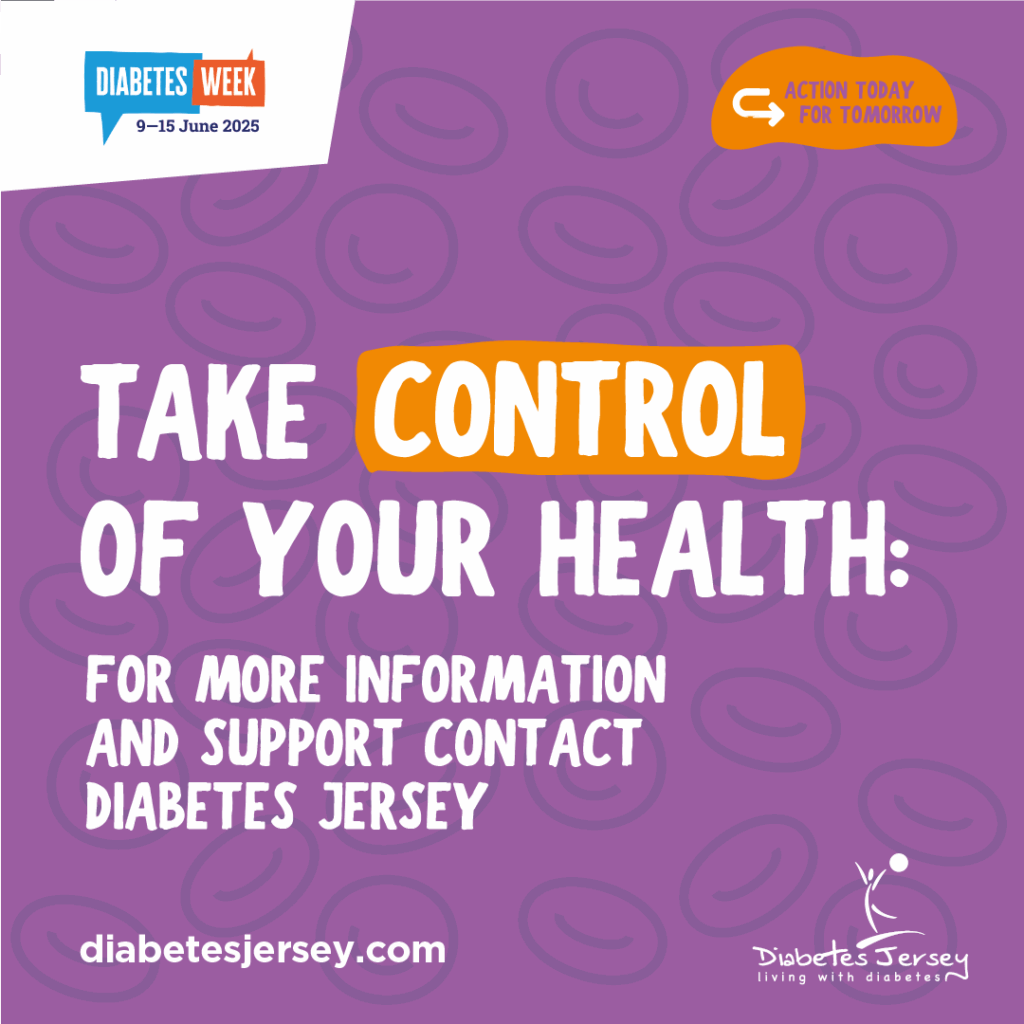Patient stories on their diagnosis, focusing on Type 1, Type 2, Mody and Paediatric

Paediatric – Dominque, mother of Theo
Our little boy Theo was diagnosed with Type 1 diabetes when he was 18 months old. It was a very sudden diagnosis and a complete and immediate change in his young life. We received fantastic care from the medical staff at the general hospital during our stay and the subsequent weeks.
We continued to receive support from the diabetes team, but we were now out on our own in the ‘real world’. The amount of information we had to take in, just to keep Theo safe was enormous. This is where Diabetes Jersey really stepped in, especially Liz.
Liz runs a WhatsApp group for parents of children and teens with Type 1 diabetes, which has provided invaluable support for us, in the early weeks and still to this day. Liz also runs coffee mornings throughout the year where we can meet other parents and talk with other people who truly understand Type 1 and the sometimes overwhelming impact on daily life.
Type 1 – Jonny Labey. Diabetes Jersey Ambassador
I would say to any parent who receives a Type 1 diabetes diagnosis, you are not alone. At times, managing the condition can seem an impossible mountain to climb, but the support from Diabetes Jersey has helped us immensely. We cannot thank the charity enough, especially Liz, who is always on hand to offer support and a listening ear.
Diabetes has never been something which weighs too heavily on my mind. That is, until something goes wrong, like forgetting something or feeling affected by blood sugars, which in my career happens quite often. To say it doesn’t hold you back is the mindset I have adopted. I feel incredibly healthy, but to be realistic, it can.
It’s that forward motion that allows you to deal with any problem as they arise. I was diagnosed at age 15 and was told I’d have foot problems, which would need to be carefully monitored during exercise, as an aspiring dancer was quite a challenge to consider.
We can all present the perfect lifestyle and mindset, yet truthfully being a diabetic is heroic, it’s something we deal with and something to be championed. Find other people with diabetes and talk to them, you’ll be truly stunned by how much you needed to hear about that shared drive and how monumental it is to find a community.
Type 2 – Patient J
I was diagnosed is Type 2 diabetes around 15 years ago, aged 45. In all honesty, I didn’t take it as seriously as I should have, after an incident when I ended up in the hospital with related symptoms. This taught me the importance of self-care. I’ve learned that managing my diet, staying active, and checking my blood sugar regularly helps me feel more in control. It’s not always easy, but taking care of myself means I have more energy and fewer health worries. I now have regular checks at the Diabetic Centre, including ophthalmology and podiatry. These are key areas that need to be looked at and kept on top of. The team at the unit are super supportive and will help in lots of areas, including diet and exercise.
Mody – This article has been submitted by a Jersey resident who was diagnosed with MODY many years ago and wishes to remain anonymous.
A little-known form of diabetes is Maturity Onset of Diabetes in the Young, more commonly referred to as ‘MODY’. It is a genetic form of the condition passed on to a child by one of the parents. Statistically, where one of the parents has MODY, there is a 50 per cent chance that each child born from the relationship will inherit this form of diabetes.
MODY affects one or two percent of people with diabetes and may often go undiagnosed in its early stages. It develops before the patient is 25 years of age. If there is a history of MODY within a family (parents and siblings), this should be discussed with the family’s GP who, based on the evidence available will make a referral to the Diabetes Service. Those already diagnosed with MODY are urged to speak to their siblings who, if not already tested, should seriously consider undergoing the test.
Just because they may consider themselves as being fit, that is certainly no barrier to the onset of MODY and if not diagnosed at the earliest opportunity, it may result in serious complications developing.
Diabetes Jersey is currently funding these tests and will continue to do so until the end of this year. This programme is not funded by Health & Community Services, but it is hoped that the Government will do so from next year.
The symptoms include a greater thirst, frequent urination, blurry vision, recurring infections, such as skin and yeast infections, dehydration and unexplained weight loss.


